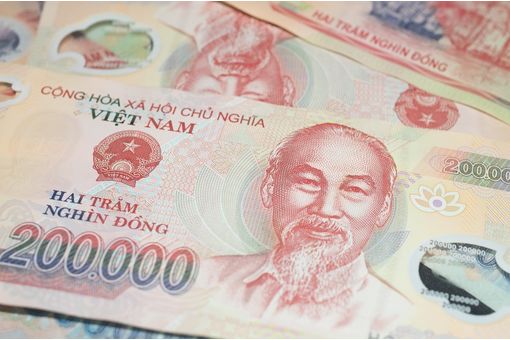Interviews
Super Textile receives TÜV recycled materials certification
26 Jul '10
3 min read
The World Cup has just left center stage, and during the event branded businesses eagerly sought exposure for their products. May be you didn't know that part of the soccer players' sportswear was made of Taiwan-recycled PET bottles. Because environmental protection has emerged as a hot topic in recent years, recycled PET bottles turned into “gold” has been a “high economic value crop”.
The well-known Tzu Chi Foundation, for example, has used recycled PET bottles made into blankets for international relief and for other people in need. This not only extends the life of the goods, but also reduces the pollution.
Tzu Chi's green polo shirts are one of Super Textile Corporation's products. TÜV's role in the project has not only been document review establishing system -management compliance, but in addition tracks supply materials from the very beginning, determining whether to use recycled materials and where the renewable materials come from – a comprehensive renewable materials supply audit encompassing all phases. The certification granted Super Textile will serve as powerful evidence to show to foreign buyers.
In the past the Taiwan public has had an impression of poor quality in regard to recycled materials, and there have been difficulties encountered in regard to inspection of recycling materials. Reliable evidence has long been lacking for recycled materials, so the public has been obliged to rely solely on suppliers' self-declarations, with doubts and uncertainty inevitably arising. Third-party certification for recycled materials will remove buyers' and consumers' doubts and increases product value for enterprises.
According to governmental statistics, about 0.18 million tons of waste plastic containers were created in Taiwan in 1998 (equivalent to six Taipei 101 buildings). Jason Wu, Vice Director of the Energy and Environmental Technology Dept. states that to obtain recycled-materials verification, an enterprise must not only have the capability to reproduce products made of recycled materials, but must also consider sources for recycled materials used along with types, recycling methods, the recycled-materials mix, and other concerns. The hazardous-substances content of the end product is also a key point of concern.
Today there are ever more international environmental regulations in place that affect the manufacture of products, from industrial-waste reduction to source reduction, green manufacturing, and eco-design to life-cycle management. These provide clear direction in the use of raw materials and recycled materials.
Germany's Blue Angel Mark, EPEAT from the United States, Sweden's TCO, and Taiwan's Green Mark all define appropriate use ratios for recycled materials. The use of recycled materials not only ensures that an enterprise meets international environmental-protection requirements, but also makes an enterprise more green-competitive.
Taiwan's textile industry has many years' experience in using recycled materials, possessing mature technology. It has successfully created a wide range of quality products for international-grade manufacturers. Certification for recycled products provides a strong boost in attracting foreign buyers, and brings higher profits. We suggest that makers of textiles and electronics obtain certification before entering the recycled-materials application market in order to enhance the value of their products.
The well-known Tzu Chi Foundation, for example, has used recycled PET bottles made into blankets for international relief and for other people in need. This not only extends the life of the goods, but also reduces the pollution.
Tzu Chi's green polo shirts are one of Super Textile Corporation's products. TÜV's role in the project has not only been document review establishing system -management compliance, but in addition tracks supply materials from the very beginning, determining whether to use recycled materials and where the renewable materials come from – a comprehensive renewable materials supply audit encompassing all phases. The certification granted Super Textile will serve as powerful evidence to show to foreign buyers.
In the past the Taiwan public has had an impression of poor quality in regard to recycled materials, and there have been difficulties encountered in regard to inspection of recycling materials. Reliable evidence has long been lacking for recycled materials, so the public has been obliged to rely solely on suppliers' self-declarations, with doubts and uncertainty inevitably arising. Third-party certification for recycled materials will remove buyers' and consumers' doubts and increases product value for enterprises.
According to governmental statistics, about 0.18 million tons of waste plastic containers were created in Taiwan in 1998 (equivalent to six Taipei 101 buildings). Jason Wu, Vice Director of the Energy and Environmental Technology Dept. states that to obtain recycled-materials verification, an enterprise must not only have the capability to reproduce products made of recycled materials, but must also consider sources for recycled materials used along with types, recycling methods, the recycled-materials mix, and other concerns. The hazardous-substances content of the end product is also a key point of concern.
Today there are ever more international environmental regulations in place that affect the manufacture of products, from industrial-waste reduction to source reduction, green manufacturing, and eco-design to life-cycle management. These provide clear direction in the use of raw materials and recycled materials.
Germany's Blue Angel Mark, EPEAT from the United States, Sweden's TCO, and Taiwan's Green Mark all define appropriate use ratios for recycled materials. The use of recycled materials not only ensures that an enterprise meets international environmental-protection requirements, but also makes an enterprise more green-competitive.
Taiwan's textile industry has many years' experience in using recycled materials, possessing mature technology. It has successfully created a wide range of quality products for international-grade manufacturers. Certification for recycled products provides a strong boost in attracting foreign buyers, and brings higher profits. We suggest that makers of textiles and electronics obtain certification before entering the recycled-materials application market in order to enhance the value of their products.
TÜV Rheinland
Popular News
Leave your Comments
Editor’s Pick
































-Ltd..jpg?tr=w-120,h-60,c-at_max,cm-pad_resize,bg-ffffff)





.jpg?tr=w-120,h-60,c-at_max,cm-pad_resize,bg-ffffff)
.jpg?tr=w-120,h-60,c-at_max,cm-pad_resize,bg-ffffff)






